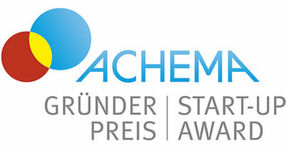London Genetics and Astrimmune to collaborate on cancer vaccine
Advertisement
London genetics Limited and Astrimmune announced that they have entered into a collaboration to plan a biomarker identification programme. The plan, for Astrimmune’s early-stage pancreatic cancer vaccine candidate, will be used in applications for further funding of its development. Financial terms were not disclosed.
Astrimmune’s vaccine candidate induces the production of antibodies against gastrin, a hormone which is known to stimulate the growth of many types of gastrointestinal cancer. Since differential response rates have been observed in clinical trials of other gastrin-blocking products, with some patients responding very well and others hardly at all, there is a clear need for biomarkers to help identify those patients most likely to benefit from Astrimmune’s product. For example, there is a possibility that the variable response rates may have been due in part to the inclusion of some patients with gastrin-insensitive tumours, or those not able to respond immunologically.
Under the terms of the collaboration, which is supported by a grant from the UK East Midlands Development Agency, London Genetics and Astrimmune will put together a proposal for identification of biomarkers predictive of clinical response. London Genetics’ seven academic partners, which have an annual research budget of over £650m, are able to provide expertise in areas such as tumour biopsy samples and animal models, as well as expertise in the genetics of immune responses to cancer vaccines.
Other news from the department business & finance
Most read news
More news from our other portals
See the theme worlds for related content
Topic world Antibodies
Antibodies are specialized molecules of our immune system that can specifically recognize and neutralize pathogens or foreign substances. Antibody research in biotech and pharma has recognized this natural defense potential and is working intensively to make it therapeutically useful. From monoclonal antibodies used against cancer or autoimmune diseases to antibody-drug conjugates that specifically transport drugs to disease cells - the possibilities are enormous

Topic world Antibodies
Antibodies are specialized molecules of our immune system that can specifically recognize and neutralize pathogens or foreign substances. Antibody research in biotech and pharma has recognized this natural defense potential and is working intensively to make it therapeutically useful. From monoclonal antibodies used against cancer or autoimmune diseases to antibody-drug conjugates that specifically transport drugs to disease cells - the possibilities are enormous





















































